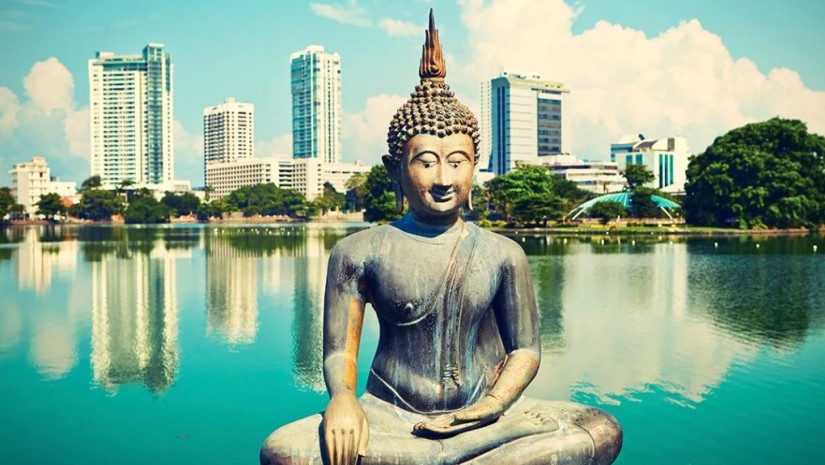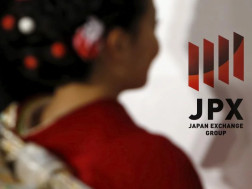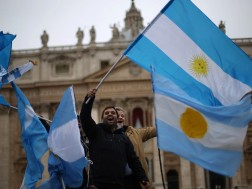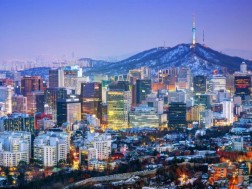Sir Winston Leonard Spencer Churchill who won the 2nd world war but lost the election famously stated, never waste a good crisis and this could also well apply to modern day socialist democratic republic of Sri Lanka.
Sri Lanka and a group of creditors are said to be in advanced talks over a deal aimed at restructuring the nation’s debt with bilateral lenders. The government and members of the official credit to committee, which includes India, Hungary and the Paris Club, are exchanging draft versions of the accord, or memorandum of understanding.
In April 2022, Sri Lanka announced that it would suspend repayment on foreign debt to preserve its remaining foreign currency reserves for essential imports. This decision marked the first time Sri Lanka had defaulted on its debt since gaining independence in 1948. The default had severe repercussions, leading to political instability, widespread protests, and calls for significant economic reforms.
According to the latest Bloomberg consensus view, Sri Lanka real GDP growth will be 3.5% in 2025 and 3.5% in 2026. The Sri Lanka Colombo stock exchange All share index trades around the 12,000-index level and a P/E of 8x and 12-month dividend yield of 3.25%.
The Ceylon index fund trades around LKR 76 levels with YTD 2024 performance of 15.87%. despite the economic crisis the 5-year performance is still +13%.
Sri Lanka’s economy is projected to see moderate growth of 3.3%% in 2024, showing signs of stabilization, following the severe economic downturn of -7.8% in 2022. the country, sadly however still faces elevated poverty levels, income inequality, and labour market concerns, says the World Bank's latest bi-annual update.
Sri Lanka had economic and political crisis, bankruptcy and IMF support. The Asian financial crisis of 1997 in hindsight was a blessing for some Asian countries like south Korea who used the crisis for fundamental structural reforms and a fundamental re-set of mindsets about how the economy and government should be run.
Sri Lanka's geopolitical importance stems from its strategic location, economic significance, and the interests of major global and regional powers in maintaining influence and stability in the Indian Ocean.
Situated in the Indian Ocean, Sri Lanka lies along one of the world's busiest maritime routes. This position makes it a crucial point for maritime trade, connecting major economies in Asia, the Middle East, and Africa. The country's ports, especially Colombo, serve as key transshipment hubs for global shipping.
Beyond India, other global powers, particularly China and the United States, have shown increasing interest in Sri Lanka. China's Belt and Road Initiative (BRI) includes significant investments in Sri Lanka's infrastructure, such as the Hambantota Port and Colombo Port City. This has led to concerns about China's growing influence in the region. The U.S. and other Western countries are also keen on countering this influence by fostering their own ties with Sri Lanka.
Marco polo described Sri Lanka as the best island of its size, the Arabs called it Serendib and the British, whose rule ended in 1948, simply called it Ceylon.
The 13th-century Venetian traveller Marco Polo described Sri Lanka, then known as Ceylon, as being “for its size, better circumstanced than any island in the world”.
The Greeks called the island, Taprobane, to most Indians however it was simply referred to as Lanka, the land of the ferocious demon king Ravana. Sri Lanka is just slightly smaller than Ireland in size and has as many people as Australia some 2o million plus inhabitants.
Prior to the sad civil war, tourism promoters advertised the country, endowed with breathtaking natural beauty as a paradise on earth. he Sri Lankan Civil War lasted from July 23, 1983, to May 18, 2009. This prolonged conflict spanned nearly 26 years and was primarily fought between the Sri Lankan government and the Liberation Tigers of Tamil Eelam (LTTE), also known as the Tamil Tigers, who sought to create an independent Tamil state in the northern and eastern parts of the island. The war ended with the defeat of the LTTE.
Philanthropic billionaire investor and early backer of president Barack Obama, George Soros famously opined “the most money is usually made when things in a country or market go from Terribly awful to just awful or just bad”
An old Sinhalese proverb states if you are on the bottom floor there is not much further you can fall.
If one is sleeping on a rock bottom mat there is not much further to fall. The same might apply to LKR denominated Sri Lanka stocks and fixed income. Debt negotiations with the IMF and bilateral creditor nations like China, India and Japan will be important to help the country recover.
The U.S and Japan maintain friendly ties and important commercial relationships. Due to its location Sri Lanka has been geopolitically significant for major powers for centuries. Both India and China had a keen geopolitical interest in Sri Lanka.
India has become a darling of global investors and most banks would recommend some allocation to India assets in globally well diversified portfolios. Sri Lanka as a frontier market with recent economic crisis and bankruptcy is still very much out of favour with global investors. In Chinese language whenever there is crisis there is opportunity for investors.
Traditional finance & economics has the concept of reversion to mean and recovery from depressed asset price valuations. According to Bloomberg data, the Colombo all share index trades at a P/E (price /earnings) ratio of 8x and the LKR currency is trading at around 302 levels against the us dollar and 224 levels against the singapore dollar. Minister mentor and founding father of the island state of singapore, Mr. Lee Kwan Yew was once said to have opined, he wished Singapore, could be like Sri Lanka. This was obviously meant in the context of no government defaults and dysfunctional politics.
While investing in Sri Lanka carries risks, particularly given the recent economic challenges, the country's potential for growth and strategic advantages can offer substantial rewards for investors willing to navigate the complexities. Conducting thorough due diligence and staying informed about the local economic and political developments is crucial for making informed investment decisions.
Rainer Michael Preiss, Partner & Portfolio Strategist at Das Family Office in Singapore
















